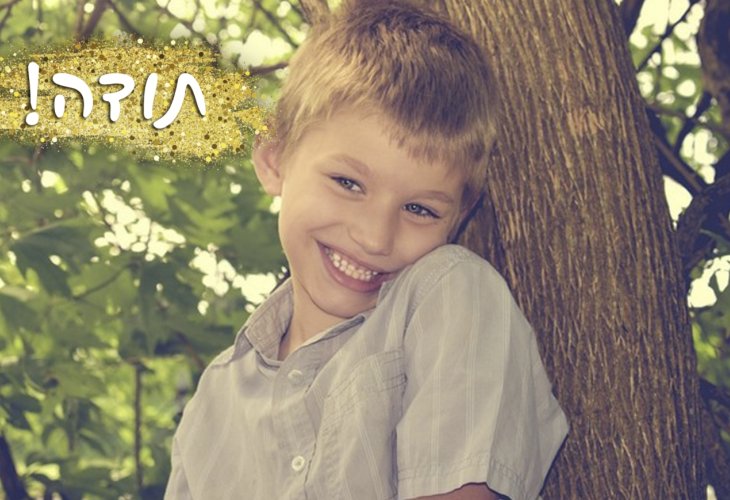Personal Stories
From Despair to Joy: A Single Mom’s Story of Thanks
Left alone with two children with autism, one mother discovered the strength of gratitude—and found light in her darkest hour.

How does a mother find strength to keep going when faced with heartbreak, loneliness, and two sons with autism? In our generation—filled with challenges, confusion, and struggle—it’s clear that we’re being asked to grow stronger in gratitude. But what does that look like when life feels impossible?
This is the story of one mother who found her answer. Her name is Nurit (alias name), and she wrote to us to share her personal journey. “I have two sons with autism—one with a severe condition, the other more moderate,” she began. “When they were born, everyone around me said I couldn’t possibly raise them. People told me to separate them, to put them in an institution. They warned me I wouldn’t survive the pressure, that I’d collapse under the burden. I was terrified. But even then, I knew—I’m their mother. And a mother doesn’t walk away from her children.”
At the time, Nurit was living abroad and had little connection to religion. Things got even harder when her husband gave her an ultimatum: “It’s me or the children.” When he realized their second child also had autism, he walked out. Nurit was left completely alone, with no partner, no family nearby, and two young boys who needed her for everything.
“I was shattered,” she remembers. “I had no idea where to turn. I felt like I was drowning—emotionally, financially, spiritually. There were nights I cried until I couldn’t cry anymore. I begged for support, for help, for someone to understand. But the only place I truly felt heard was when I spoke to Hashem.” She describes how she began “arguing” with God—not out of disrespect, but from a place of raw honesty. “I cried, I shouted, I poured out my heart. I told Him everything. And after months of this... something shifted. I realized I wasn’t really alone. It was me and my sons—and Hashem with us. Together, we could face anything.”
That moment changed her. Though she had no money and her home was filled with struggle, Nurit chose to fight—not just for survival, but for growth. “My younger son didn’t speak at all. But thank God, with time and effort, he started talking. I gave everything I had to help them move forward, to grow. And the whole time, Hashem was guiding me. He was my teacher, my source of strength, my silent partner.”
While learning how to care for her sons, Nurit also began to learn about Hashem and Judaism. “I went to buy books about autism,” she recalls, “and I came home with books about faith. I started learning what Hashem wants from me. I began to understand that He hadn’t abandoned me—He was drawing me closer.” With each page she read, and each heartfelt blessing she whispered, her soul began to bloom. “I felt like a flower opening toward the light,” she says. “The more I thanked Hashem, the more I saw blessings in my life. My sons started thriving. My finances improved. My heart opened.”
Today, Nurit’s life looks very different. Her sons are still with her—one is studying, the other, though still limited, is working. And Nurit is full of thanks. “I came back to our Father in Heaven with my whole heart. I thank Him constantly. I thank Him for my sons. For the autism. For the heartbreak. For the growth. For our personal redemption—our own yetziat Mitzrayim, our exodus from darkness. Thank You, Hashem, for never leaving us. Thank You for teaching me, guiding me, and loving me. I love You so much.”
Nurit’s story reminds us that gratitude is more than just a feeling. It’s a spiritual practice that can bring light into even the darkest places. When we thank Hashem, we open the door for healing—not just in our circumstances, but in our hearts.

